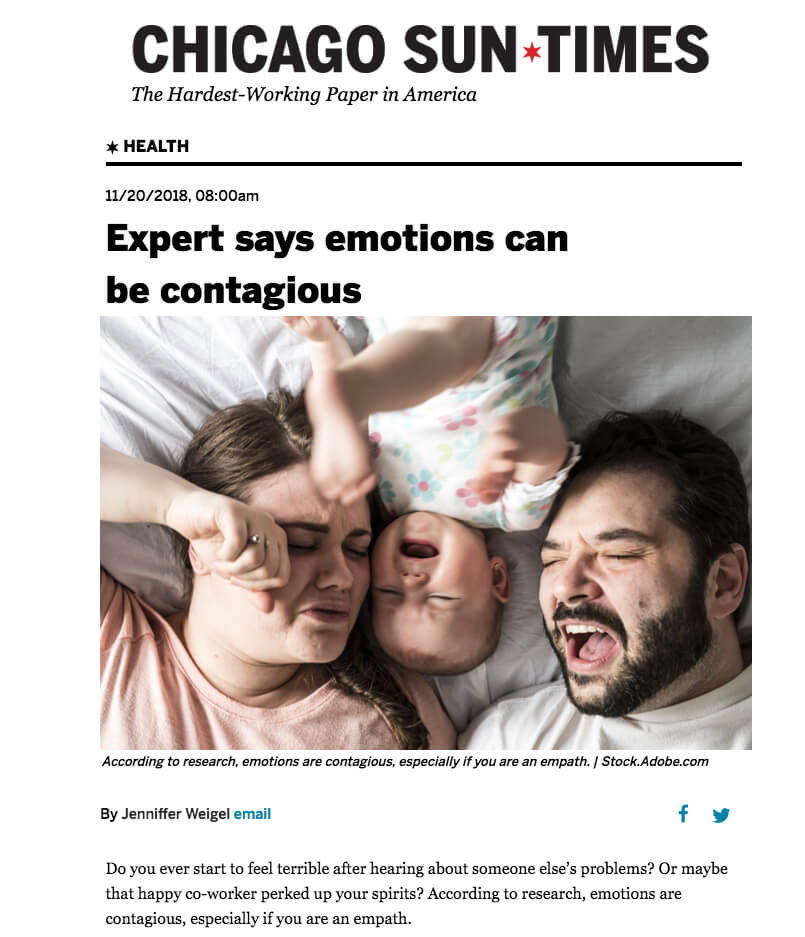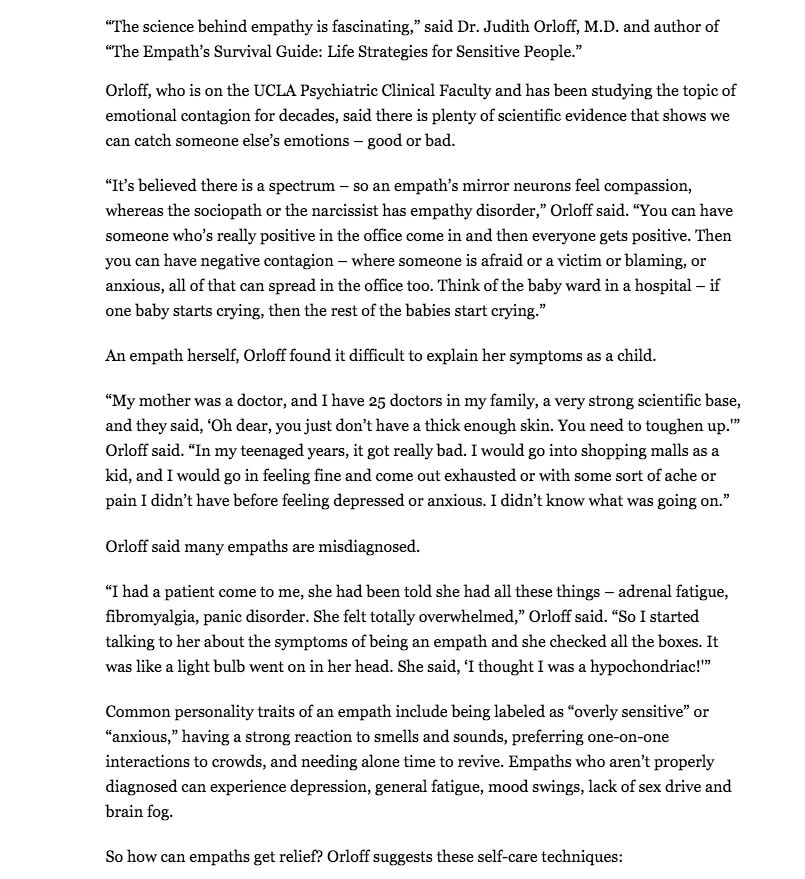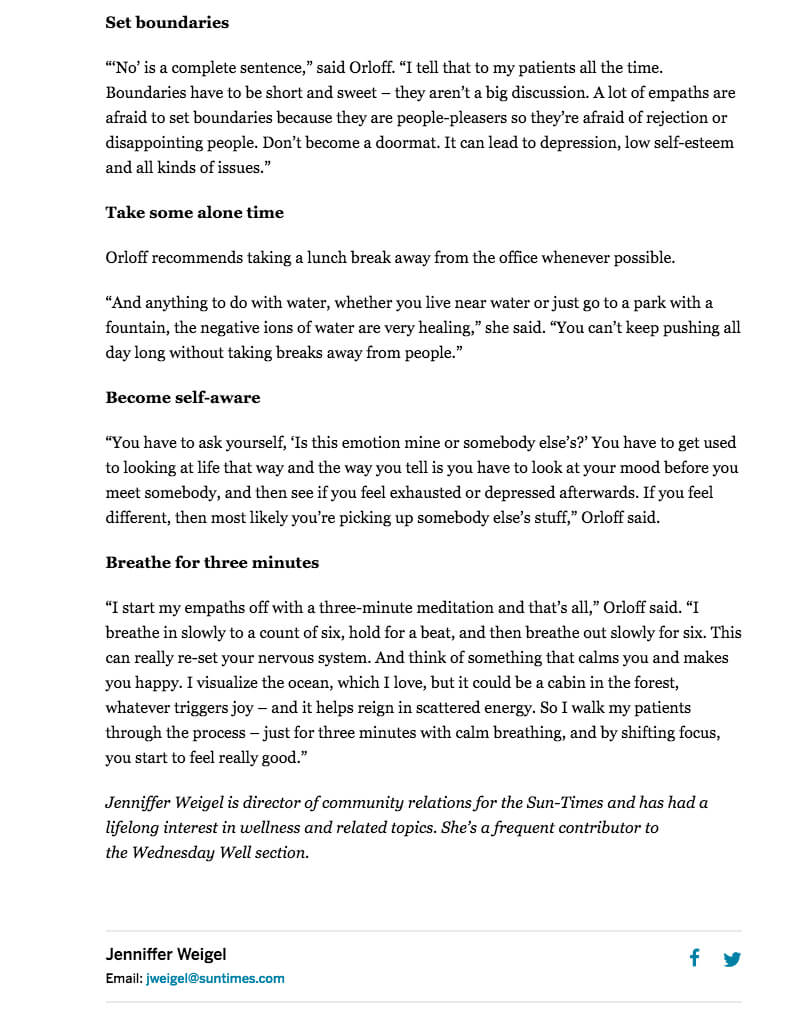Are you an empath? Take the test here to determine your empath score.



Summary of Article
Since research has shown that emotions can be contagious, you can potentially “catch” fear, anger, or joy from people without realizing it. If you tend to be an emotional sponge, it’s vital to know how to avoid taking on an individual’s negative emotions or the free-floating kind in crowds. Another twist is that chronic anxiety, depression, or stress can turn you into an emotional sponge by wearing down your defenses. Suddenly, you become hyper-attuned to others, especially those with similar pain. That’s how empathy works; we zero in on hot-button issues that are unresolved in ourselves. Negative emotions can originate from several sources. What you’re feeling may be your own; it may be someone else’s; or it may be a combination.
Growing up, my girlfriends couldn’t wait to hit the shopping malls and go to parties, the bigger the better–but I didn’t share their excitement. I always felt overwhelmed, exhausted around large groups of people, though I was clueless why. “What’s the matter with you?” friends would say, shooting me the weirdest looks. All I knew was that crowded places and I just didn’t mix. I’d go there feeling just fine but leave nervous, depressed, or with some horrible new ache or pain. Unsuspectingly, I was a sponge, sensing the emotions of people around me.
With my patients, I’ve also seen how absorbing other people’s emotions can trigger panic attacks, depression, food, sex and drug binges, and a plethora of physical symptoms that defy traditional medical diagnosis. The Centers for Disease Control and Prevention report that more than two million Americans suffer from chronic fatigue. It’s likely that many of them are emotional sponges.
Though everyone is susceptible to emotional contagion, it is amplified in empaths and highly sensitive people. The good news is that sensitive people can benefit from all the positive energy that circulates at work. The difficult news is that we can pick up other people’s emotions or illnesses until we learn to avoid taking on their stress. I discuss strategies to help empaths and highly sensitive people learn how to stay grounded and centered in my book Empath’s Survival Guide.


